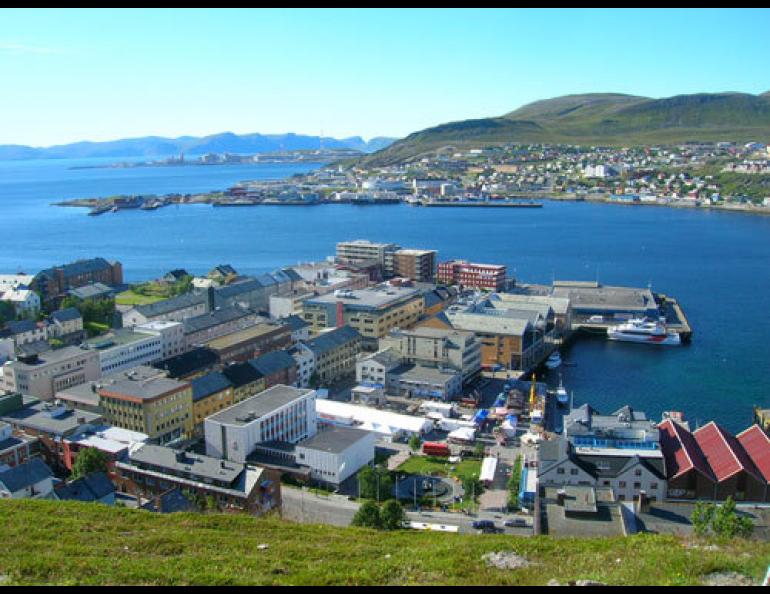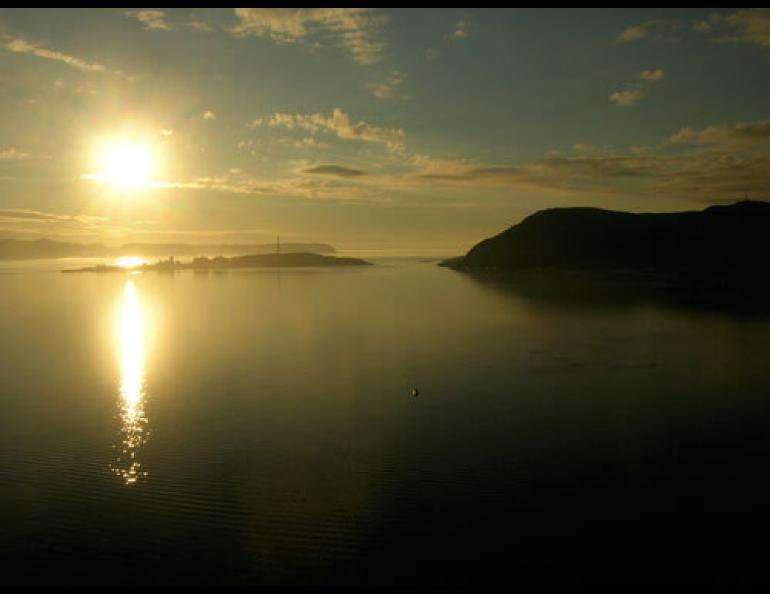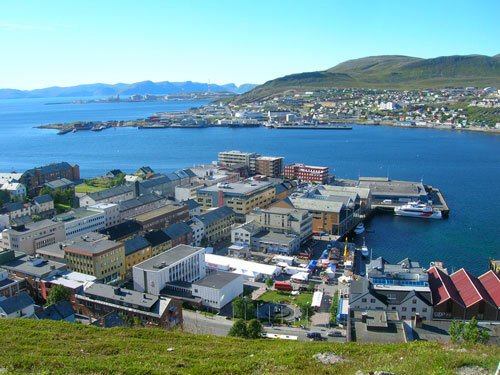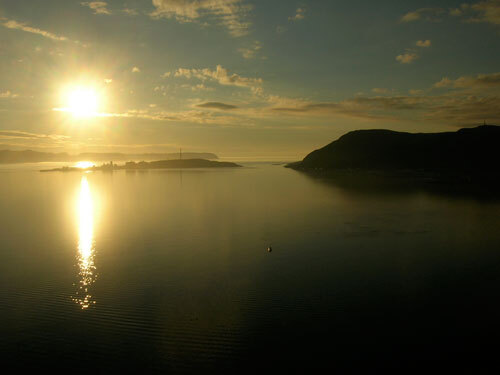

Big industry meets a small fishing town
Imagine a village on the ocean, well north of the Arctic Circle. For years, townspeople have scraped out a living by fishing for cod and herding reindeer. Then one day, during exploratory drilling, an oil company discovers tremendous wealth just offshore.
The residents agree to allow the giant company to develop a field of natural gas. Wary of the possibility of all the money flowing south while their environment bears all the risk, they demand concessions from the company. The company agrees to many of those requests, even though it doesn’t have to. The result is an imperfect but somewhat fair partnership.
This scenario is now playing out in Hammerfest, Norway, a village comparable to Dillingham, Alaska, in its size and economy. A University of Alaska Fairbanks graduate student recently studied the interactions between a big company and the people of Hammerfest.
Matt Klick just defended his thesis on how a Norwegian oil company used “corporate social responsibility” in working with the people of Hammerfest. Klick, now with the university’s Institute of Social and Economic Research, traveled to Norway several times to speak with fishermen, businesspeople, reindeer herders, and oil-company executives.
Corporate social responsibility is an economic concept in which companies volunteer to do more than regulations force them to do, because they realize their industry affects people and the environment, and because doing more can be good for business.
The main player in Hammerfest is the Norwegian energy company StatoilHydro, which in the early 1980s found a sizable natural gas deposit in the Barents Sea north of Hammerfest. With Norway’s government recently lifting a ban on development in the Far North and the rising price of oil, company leaders made a push to develop a field they named Snohvit, (“Snow White.)”
Executives of the state-owned company did several things they weren’t required to do, according to Klick.
- They found office space in Hammerfest and lived there rather than running the show from the capital city of Oslo, 825 miles away. This made them more accessible to the people of Hammerfest.
- When fishermen said that the proposed undersea pathway of a natural-gas pipeline would interfere with their fishing, the executives chose another route.
- The company set up a sort of community college to lure people back to Hammerfest to train for high-paying jobs with StatoilHydro. With the cod industry declining, some families had moved away.
- Rather than hiring familiar contractors and flying them in from elsewhere, StatoilHydro hired Hammerfest contractors when it could.
- The company used new cutting fluids that were less toxic than conventional ones and built a carbon-capture-and-storage operation.
From his meetings with people in Hammerfest and Oslo, Klick concluded in this thesis that the company’s inclusive approach worked. The development was less polluting than it could have been, the company didn’t need to plow through lawsuits from people wanting to stop development, and it also attracted the positive attention that helps companies do business.
“Fishermen in other towns were looking on, knowing they were next,” Klick said. “(StatoilHydro) gained credibility throughout the country. It was economically effective for them to do this.”
But the company did not please everyone. The local Sami people, a Native group of reindeer herders, wanted more land for grazing reindeer. StatoilHydro couldn’t produce it, nor did they agree to give the Sami a percentage of oil revenue. Klick said that the Sami people he talked to didn’t feel like the company included them as much as the others during the process.
“That begs the question ‘why?’” Klick said. “This isn’t a perfect system.”
But, he said, it seems to be a better outcome than what has happened many times in the past when big industry descended upon small towns. Klick said the relationship could be a model for villagers in other resource-rich places who find giants at their doorsteps.






